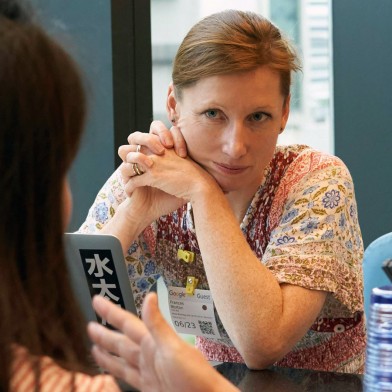OPINION: On May 8, Singapore passed the Prevention of Online Falsehoods and Manipulation Act (POFMA). It is one of the most draconian responses to the ongoing challenges of disinformation, or “fake news", that has emerged since the election of United States president Donald Trump.
The proliferation of digital spaces for members of the public to express themselves offers great opportunities for strengthening democracies. Yet there are significant concerns over the rapid circulation of digital disinformation. These include dissemination of violence, harmful health and wellbeing effects, and influence of foreign governments on domestic politics.
One of the most concerning aspects of Singapore’s new law is that it puts initial decision-making on the truthfulness of information in the hands of ruling People’s Action Party ministers. This raises serious questions about who gets to be the arbiter of truth and how the decision on what is truth constitutes the fabric of democracy.
Democracy, not limits, the solution to disinformation
The solution to the spread of digital disinformation is not greater limits on democracy, but more opportunities for democratic participation, deliberation, and voice.
On the one hand, the capabilities of digital channels to spread disinformation at an accelerated pace do pose concerns, especially in the realm of hate speech. In Myanmar and India, for example, digital tools have been used to disseminate anti-minority hatred.
On the other hand, the effects of digital disinformation on beliefs, attitudes, and behaviours are limited because of a wide range of moderating and mediating factors that shape how digital media effects work. In the cases of Myanmar and India, the impact of digital hate is likely to have been more pronounced because it is sponsored by the state. Opportunities for countering the hate are limited because of local constraints on freedom of expression.
Disinformation thrives and has the greatest impact in places lacking opposing and plural viewpoints.
Threats to academic freedom
I am concerned about what POFMA means for academic freedom in Singapore, which already faces challenges. I research racism, poverty, and migrant labour in Singapore. In Singapore, these are often called “out-of-bound” issues and must be negotiated carefully. I therefore signed the statement of concern about POFMA along with over 120 other academics from across the globe including an unprecedented number of Singapore-based academics.
Singaporean Minister of Education Ong Ye Kung responded to academics who raised concerns about POFMA with reassurances that academic freedom will not be impacted. He went on to differentiate between rigorous academic scholarship and activism. This presents an either/or separation between academia and activism. It does not capture the nature of scholarship that is committed to generating impact. Engaged scholarship creates impact by getting out of the ivory tower, immersing in the rhythms of community life, and seeking social change on the basis of the findings.
This is certainly the case at the Center for Culture-Centered Approach to Research and Evaluation (CARE), which I direct at Massey University. We work on developing community voices at the margins. In Singapore, we implemented the “No Singaporeans Left Behind” campaign in partnership with an advisory group of community members living in poverty. Our findings on food insecurity among low-income households in Singapore likely departs significantly from the state narrative. CARE’s mission is not only to publish our findings in academic journals, but see the research translate into impact through public engagement.
Meanwhile, CARE’s activist-in-residence programme seeks to build knowledge of social change communication through collaborations with activists. Yet this programme would directly violate the minister’s separation of the academic and activist worlds.
Singapore has ongoing challenges with freedom of expression, freedom of assembly, and democratic participation. A culture of self-censorship and calibrated participation already exists. POFMA will have significant implications for access to alternative voices and means of participation.
Mohan Dutta is Dean's Chair Professor of Communication and the Director of the Center for Culture-Centered Approach to Research and Evaluation at Massey University. Views expressed in this article are personal to the author.
- Asia Media Centre



